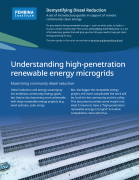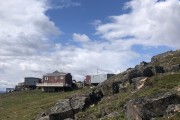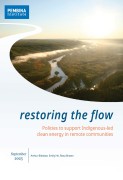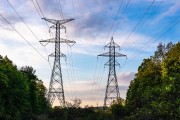
Emily He is the manager of the Renewables in Remote Communities program at the Pembina Institute. Her work focuses on unlocking opportunities for and addressing barriers to the clean energy transition in Canada’s remote communities.
With a background in engineering consulting, Emily has contributed to renewable energy and/or energy efficiency projects in over 25 countries, several in remote and northern climates. Her expertise ranges from performing prefeasibility studies to due diligence assessments for stand-alone and hybrid power systems (primarily solar PV, wind, waste-to-energy, and batteries).
Emily holds a bachelor’s degree in environmental engineering from the University of Waterloo. Outside of the office you can find Emily hiking, creating visual art, experiencing live music, and getting through her to-read list.
Contact Emily He
Emily He's Research & Analysis

Becoming an Independent Power Producer
An introductory guide to building a renewable energy project in your remote community


High-penetration renewable energy microgrids
Maximizing community diesel reduction


The Iqaluit Nukkiksautiit Project is transformative for Nunavut
What can we learn from the local leaders behind it?


2025 IESO FIRST NATIONS ENERGY SYMPOSIUM
Looking Ahead to Canada’s Future Energy Mix


